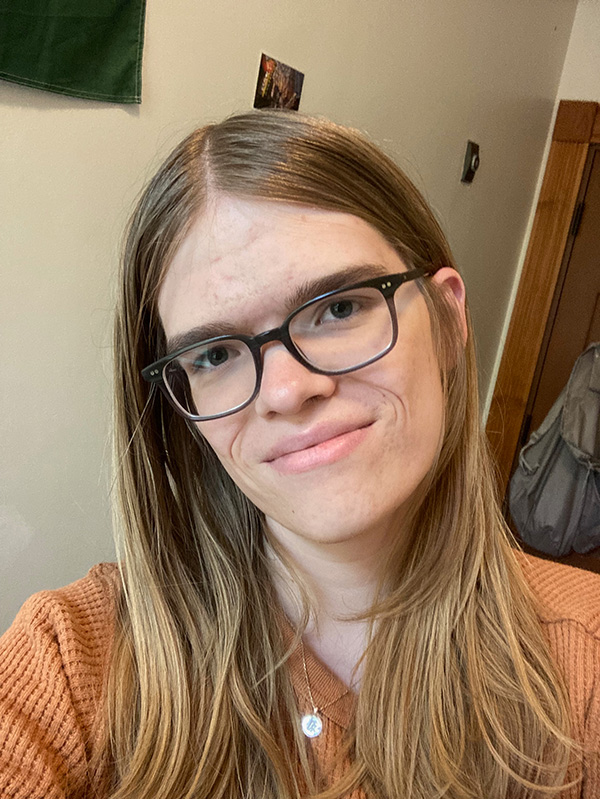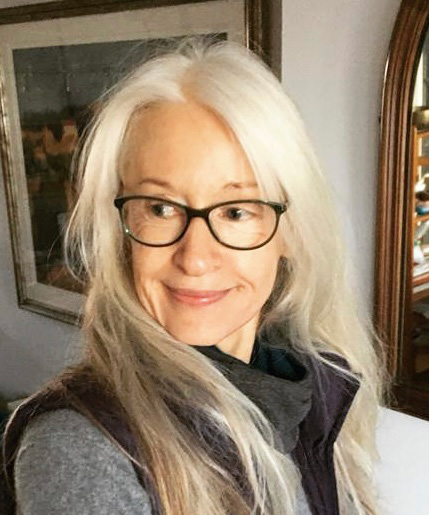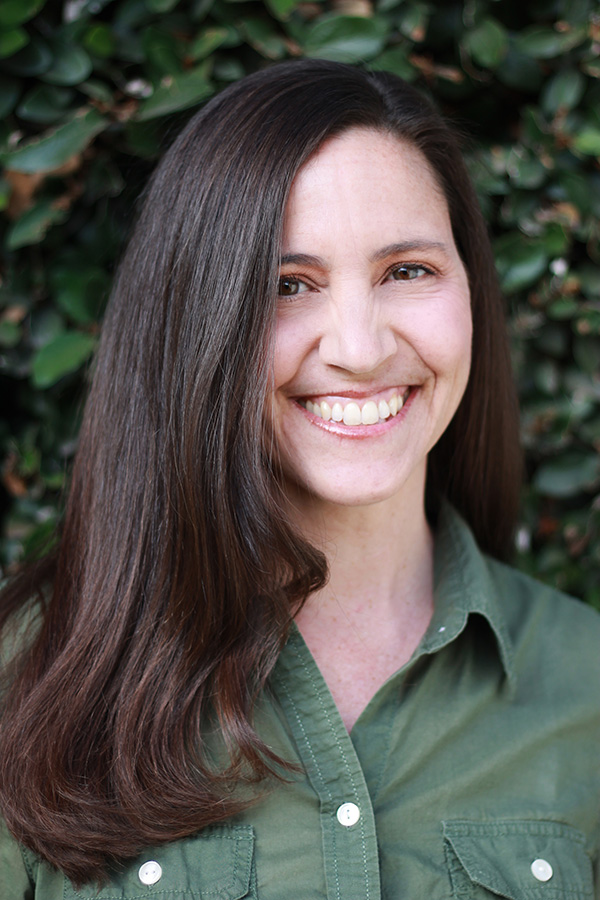Interview with Alyssa Willeford: Summer 2024 Flash Fiction Contest Third Place Winner
Surviving the Holiday Marathon
Jodi M. Webb writes from her home in the Pennsylvania mountains about everything from DIY projects to tea to butterflies. She's also a blog tour manager for WOW-Women on Writing and a writing tutor at her local university. Her ideal holiday would be Writing Under a Tree Day. Get to know her @jodiwebbwrites, Facebook and blogging at Words by Webb.
A Thousand Words in One Photograph
What Our Bookshelves Say About Us
If you’re like me, the bookshelves in your house are overflowing with titles, some of which you haven’t gotten around to reading yet. In our house, we have bookshelves in my home office and upstairs in our loft area. My daughter and son also have bookshelves in their rooms.
Interview with Dawn Rae, 2nd Place Winner in the WOW! Summer 2024 Flash Fiction Contest
Interview with Amy DeFlavis, Runner Up in the WOW! Q4 2024 Creative Nonfiction Contest
Testing a Book Idea on Social Media
The week that she announced her plan to create the book, I was playing around with a graphic. I periodically add text to photos to make graphics for social media. If this is well received, I thought, I could make a book like Deidre’s.
How was the response? Crickets, people. Nothing but crickets.
But this illustrates why it can be a good idea to test things out online. Some people blog their book before actually creating the manuscript. Others, who are doing something more graphic, create posts for other forms of social media like Twitter, Instagram, Bluesky or Facebook.
Previewing your book can be a good idea. It saves you the time of creating a full manuscript if there is no interest. But this assumes something. Are the people you normally interact with the audience for your idea? If not, you can’t expect much of a reception.
This is also a good way to get feedback. Not sure if readers would be more interested in a chapter set in Miami or Milan? Just ask. Of course, there’s a downside to this. You are definitely going to use one of these two locations. You’ve decided that. But everyone wants you to use where they live, where they were born, or the location they just saw on the Travel Channel.
There is also the matter of balance. Post something online and it is published. Are you going to be able to interest a publisher at this point? Maybe if your readership is large enough or if you can expand on what you’ve posted, making it bigger and better.
Posting about things you really want to do can be discouraging. Why is everyone commenting on another cat clip and you can’t garner any interest?
Maybe the best way is to do what Deidre did. Post about what is going on in your life and jump on what gets a strong response.
Fortunately, I have enough ideas that I can’t pursue them all. Besides, I’m a devoted library rat/reading horse/book swallower and I have another book to read.
--SueBE
- To find out more about her writing, visit her site and blog, One Writer's Journey.
- Click here to find her newsletter.
Interview with Emily Shipman: Summer '24 Flash Fiction Contest First Place Winner
Emily: Thank you! This is my first time winning a contest so there was a lot of dancing and cheering when I found out. I was in a writing program called Monthly Mentorship and my instructor, Katey Schultz, suggested WOW! Women On Writing when I was looking for places to submit flash fiction. I entered the summer contest because the top prize of Tom Bromley’s novel writing class was appealing, and I thought this story could be a good fit. I’m glad I took my shot!
WOW Can you tell us what encouraged the idea behind your story, “Sorry Do I Know You?”
Also, your verbs are going to do a lot of heavy lifting so choose exciting ones.
Ask the Book Doctor: About Literary Agents
 |
| Designed by Freepik |
Interview with Sandra Jensen: Q4 2024 Creative Nonfiction Contest Runner Up
Back to School
Jodi M. Webb writes from her home in the Pennsylvania mountains about everything from DIY projects to tea to butterflies. She's also a blog tour manager for WOW-Women on Writing and a writing tutor at her local university. Get to know her @jodiwebbwrites, Facebook and blogging at Words by Webb.
Interview with Elizabeth Jannuzzi: Q4 2024 Creative Nonfiction Contest Runner Up
---interview by Marcia Peterson
WOW: Congratulations on placing as a runner up in our Q4 2024 Creative Nonfiction essay competition! What prompted you to enter the contest?
Elizabeth: Thank you so much! I was honored and delighted to be a runner-up in WOW’s contest. I became aware of WOW! Women On Writing when a colleague, Courtney Harler, from the organization where I work Project Write Now, won the Flash Essay contest in October 2022. Since then, I’ve been a fan of this publication that promotes women. THEN, my colleague and friend, Jennifer Gaites, won first place in WOW’s Q4 2023 Creative Nonfiction essay contest. I guess I wanted to throw my hat in the ring as well.
WOW: Your entry, “Purgatory in Two Parts” is a quietly powerful piece, including the ending. What inspired you to write it?
Elizabeth: You know how as writers, we keep returning to the same themes, or as a memoirist, the same moment in our lives? My sister’s suicide attempt and the eight months she spent in the hospital before she eventually died is one of those moments for me. (I have other published pieces on the same topic.)
I’d like to say my inspiration is to remove the shame surrounding mental illness and suicide but to be honest, that’s just a by-product of my writing. I feel drawn to write about my sister’s suicide in order to understand it. Twenty-seven years after she passed, I’m still trying to figure it out. The second part of my essay though is a direct reaction to people (the lit mag editor) not understanding mental illness and suicide and how that hurts those of us who are survivors of suicide loss. That section IS an attempt to educate people.
WOW: Do you have any thoughts or advice for writing about difficult things?
Elizabeth: Ah, that’s a good question. But beyond the typical self-care advice--be kind to yourself, take breaks, go for a walk, etc.--not really. I will say that it’s important to lean into the difficult topics. Write the thing that’s hard to say. That’s where the heat is. That’s what’s going to resonate with readers. It may be difficult, but that’s what connects us and creates empathy. “Normalize,” as Brené Brown would say.
WOW: You mentioned that you’re working on a memoir. Anything you can share about the writing process, or how the journey of writing this book is going for you?
Elizabeth: Thanks for asking! I’ve written one memoir, SOBER MOM, about my recovery from alcoholism. I’m currently querying agents for that manuscript. (Hello? Any agents out there?) And I’m writing a weekly Substack to build my author platform.
My second memoir about loss, grief, and resilience, called THIS WOMAN’S WORK, is still a draft. I plan to revise it in 2025.
I’m currently a member of a wonderful community of writers called book inc, a division of the nonprofit Project Write Now. Our Memoir and Novel Incubators are yearlong creative writing programs to guide and support writers from their initial story ideas to the completion of their manuscripts. I highly recommend this program, and I’m not just saying that as its program manager! :-)
WOW: Thanks so much for chatting with us today, Elizabeth. Before you go, can you share a favorite writing tip or piece of advice?
Elizabeth: Thank YOU for the opportunity. Writing advice? Let’s see…I used to berate myself because I didn’t write every day. I thought I wasn’t a real writer because of that fact. As a busy working mom, I only had time to write on the weekends or if I scheduled a writing retreat for myself. Once I let go of that (patriarchial?) pressure to write every day and allowed myself to write when and how I could, I started to flourish. Don’t let others tell you what your writing practice should look like.
Caring for Yourself During Writer's Burnout
It seems only appropriate that as I sit here writing this, a carbon monoxide detector in my house is dying and sending out a warning beep every 90 seconds. How about we add stress to a writer who is already at her limit? (Don’t worry, all is fine, another detector died a few weeks ago and we had to replace it. Currently waiting on my husband to get home with a new one).
Interview with Kerby Kunstler Caudill, Runner Up in the WOW! Q4 2024 Creative Nonfiction Essay Contest
Congratulations to Kerby Kunstler Caudill from Culver City, California for her award-winning story, "Counting," and to all of the other contestants and winners of the WOW! Women on Writing Quarter 4 2024 Essay Contest!
Interview with Anna Corbin: Q4 2024 Creative Nonfiction Contest Runner Up
Prior to the COVID-19 pandemic, Anna spent her time advocating for health care on a local and national level. She received multiple awards and recognitions as a result of her efforts. Taking an indefinite break from the rigors of activism, Anna now spends her time pursuing her goal of becoming a published author. She is an avid reader and aspiring writer with multiple projects in various stages of development.
Anna lives in south central Pennsylvania with her husband, their two teen sons, a dog named Eloise, and an axolotl named Alfie. Check her out on Facebook.
You can read her essay "Dirty Laundry" HERE.
WOW: Congratulations on being a runner up in the WOW Q4 2024 Creative Nonfiction Essay Contest which also happens to be the first writing contest you ever entered! What made you decide that "Dirty Laundry" was the piece to enter?
Anna: Thank you so much! Winning runner-up in the WOW Q4 2024 Creative Nonfiction Essay Contest came as such a shock to me. I have written many pieces over the years as a hobby, but only recently decided to actually devote the time to becoming a professional writer. I woke up one morning to an email from Poets & Writers advertising the WOW contest and decided that morning that I would enter. It was only a few weeks before the deadline, so I chose “Dirty Laundry” simply because it was the most recent essay I had written. I was already proud of it on a personal level. It is difficult for me to talk about some parts of my past publicly, and I had written “Dirty Laundry” to help me cope with the feelings I was having over parting with the basket.
I know that if I am going to make it as a writer, I cannot not be afraid of sharing my truth. I ultimately want to write relatable content that might help others heal from their own trauma, but my desire to maintain my privacy has always held me back. Entering this contest was about more than just being judged by strangers for the first time or seeing if I have what it takes to win writing contests. It was about having the strength to share something deeply personal with the general public. It was about exposing my vulnerability. As far I was concerned, the true contest was whether or not I was brave enough to go public, so my goal was met the moment I hit, “Send.” Making it into the top ten after having no expectations at all was an incredible feeling. I am honestly still processing it!
WOW: You are relatively new to the life of a working writer. Can you share what made you pivot from health activist to writer?
Anna: For the past twenty years, I have gone where I am needed. I am a cosmetologist by trade, but when I gave birth to my oldest son, I was needed at home, so I became a stay-at-home mom. Shortly after giving birth to my second son, the three of us were diagnosed with Noonan Syndrome, a genetic condition that affects various systems of the body. I immediately became an advocate for my boys, for the whirlwind of doctors’ visits, hospitalizations, and surgeries that followed. When they began to miss too much school from all of their illnesses, I became a homeschool teacher. Seven years ago, when there was a chance that they may lose their health care due to bills that were floating through Congress, I became a health care activist. I was in DC every week, walking the halls of the House and Senate buildings, meeting with political leaders, and fighting for the rights of not only my sons, but for myself and millions of others with chronic illnesses and disabilities. We ultimately won that battle, and it was such a relief. Now that my sons are older, they are thriving in terms of their health, and as teens, they do not need me as much.
The writer in me has always been waiting for her turn. There has not been much room for her in the very busy life I have led over the last few decades, and she has been relegated to late nights or early mornings and any spare moments I could muster. There are so many formidable health care activists who are willing to pick up the baton, so I feel comfortable putting that part of my life aside. It is my time. I am ready to make the commitment to become a published author.
WOW: An amazing story and you must have so much to say. What is one of the most surprising things you've learned about the writing world?
Anna: I am still very much a newbie, so I have not had much experience yet, but one thing that I have found to be refreshing is how supportive the writing community is. Whenever I feel stuck or like I might want to give up, I reach out to my writer friends or visit a social media page for writers. I have found that writers are an amazing group of people who are ready and willing to lift each other up and give encouragement. It is a beautiful thing, and I feel honored to be a part of such a remarkable vocation.
WOW: Yes, I appreciate that feeling of having so many people rooting for me too. Can you share a little more about the type of writing you're pursuing?
Anna: I have always been an essayist. It is my favorite form of writing. I love telling personal stories in unconventional ways, and taking the simplest detail (like, say, a laundry basket) and building a message around it. With my many lived experiences, my memoir is my constant work in progress.
I am also trying my hand at fiction. I have never written fiction before, but a few years ago, I had an idea and decided to run with it. I did not to expect to have this much fun writing fiction, and it has been so enjoyable that I am now simultaneously writing two very different novels.
 WOW: You are a very busy writer! This may have nothing to do with your writing but I think WOW readers would like to know - what's an axolotl (see Anna's bio above) and how exactly did one come to share your life?
WOW: You are a very busy writer! This may have nothing to do with your writing but I think WOW readers would like to know - what's an axolotl (see Anna's bio above) and how exactly did one come to share your life?
Anna: An axolotl is a type of salamander that is native to Mexico. A friend of mine is a biology teacher who had acquired three of them to observe for his Masters’ thesis. He posted about them on Facebook when they were just babies. My oldest son loves exotic animals, so we asked if we could come see them in person. My friend countered by asking us if we would rather have one to keep. My son jumped at the chance. Alfie was a little over a year old when he came to live with us, and he just turned five. He has such a big personality, and we all love him so much. I never thought I would ever have a footlong salamander living in an aquarium in my basement, but now I cannot imagine life without him!
WOW: I would love to see Alfie make a cameo appearance in one of your novels! Thanks for sharing and we all look forward to your future achievements.



.jpg)











.jpg)







